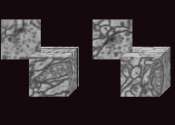Study sheds new light on the contribution of dopamine to reinforcement learning
The neurotransmitter dopamine has often been linked to pleasure-seeking behaviors and making stimuli paired with rewards (e.g., food, drinks) valuable. Nonetheless, the processes through which this key chemical messenger ...









